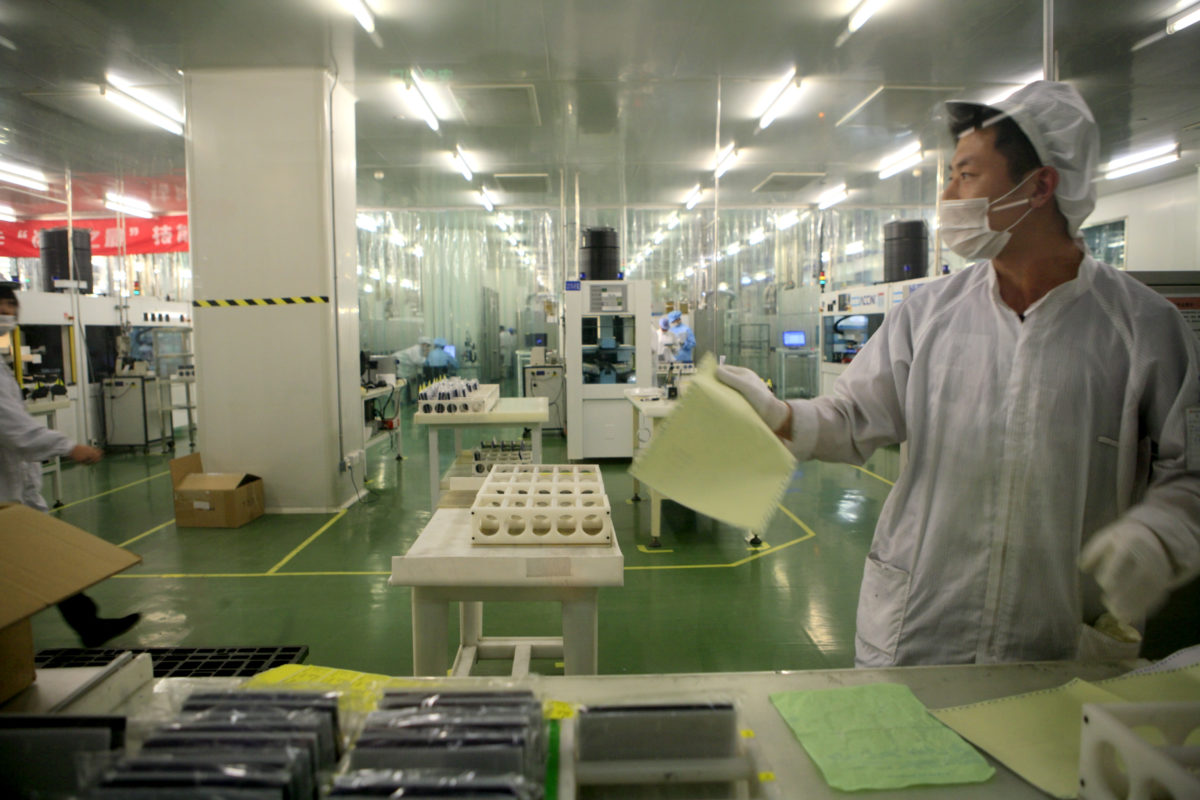In the run-up to the Senate Inquiry into Jobs for the Future in Regional Areas on Tuesday, the Australian Manufacturing Workers’ Union (AMWU) was preparing a series of proposals to create highly skilled and well-paying manufacturing jobs in a range of industries, including lithium batteries, green hydrogen and renewables. While highlighting the need to put downward pressure on high electricity prices which continue to impact the sector, the AMWU also pointed out the nation’s minerals deposits, lithium in particular, are offering a range of employment opportunities in the upstream supply chain.
Noting that manufacturing employs more workers than mining, AMWU National Research Officer Adam Wieladek said that manufacturing has the capacity for major growth by focusing on a range of industries including domestic manufacture of lithium batteries, green hydrogen, rail rolling stock, defence equipment and renewables.
“We must develop new industries in regional areas and assist manufacturers to take advantage of emerging opportunities and create thousands of new jobs,” Wieladek said. “However, to achieve manufacturing jobs growth in regional Australia, we must address high energy costs, restricted access to finance and the lack of industry planning.”
One of the AMWU proposals is to tap Australia’s mine deposits to create manufacturing jobs. “It makes no sense to mine and export minerals containing lithium when we could be manufacturing and exporting lithium batteries and electric vehicles globally,” Wieladek said.
To build a local battery manufacturing chain, Australia would first need to develop sufficient lithium conversion capacity, since it presently exports most of its lithium-rich spodumene concentrate to be converted into battery-grade lithium hydroxite elsewhere. Namely, in addition to slower than expected EV demand, slowdown in the mineral conversion capacity in China was the reasons behind the oversupply of Australian lithium, which has resulted in tumbling prices.
However, an important milestone towards developing local refining capacities was reached earlier this year with the launch of construction at Australia’s biggest lithium-processing plant in Western Australia’s South West. The $1 billion facility is being developed by U.S. company Albemarle and targets 100,000 tonnes of battery-grade lithium hydroxide a year with up to 1,000 local jobs.
Further down the chain, a number of jobs were created over the last year following the arrival of international renewables manufacturers. For instance, Alpha ESS, Sonnen and Eguana Technologies have established assembly plants in South Australia following the announcement of the government’s Home Battery Scheme. Meanwhile, Vestas started assembling wind turbine components at the former Ford Motors site last month, driving new manufacturing jobs in Geelong.
Following the demise of the automotive assembly sector, the Australian manufacturing sector had seen heavy job losses, before it staged a brief comeback in 2018. However, the positive trend has reversed with employment levels now heading to all-time lows.
Over the year to February 2019, manufacturing employment fell by 5.4% p.a. to 873,000, which is the lowest number of manufacturing jobs. “Even after this latest fall however, total manufacturing accounts for 6.8% of all employment and is Australia’s seventh largest employing industry,” the Australian Industry Group states in a report released in May.
This content is protected by copyright and may not be reused. If you want to cooperate with us and would like to reuse some of our content, please contact: editors@pv-magazine.com.









By submitting this form you agree to pv magazine using your data for the purposes of publishing your comment.
Your personal data will only be disclosed or otherwise transmitted to third parties for the purposes of spam filtering or if this is necessary for technical maintenance of the website. Any other transfer to third parties will not take place unless this is justified on the basis of applicable data protection regulations or if pv magazine is legally obliged to do so.
You may revoke this consent at any time with effect for the future, in which case your personal data will be deleted immediately. Otherwise, your data will be deleted if pv magazine has processed your request or the purpose of data storage is fulfilled.
Further information on data privacy can be found in our Data Protection Policy.